Writing
A selection of books, essays, and articles
A selection of books, essays, and articles
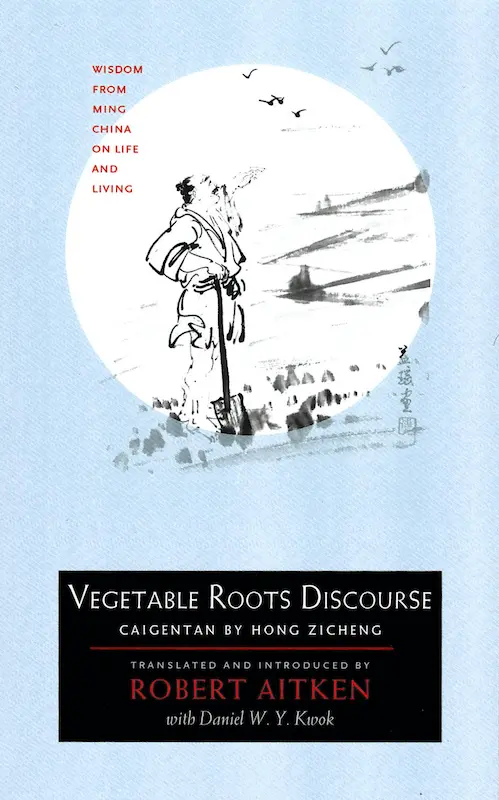
2006 / 2007
From the afterword: “Those who subsist on shrubs and weeds are almost all pure and clear as jade, those who dress in finery and eat sumptuously have the complexion of fawning servitors. For true ambition is manifest in simplicity and purity, and integrity perishes in sweet fat. 藜口莧腸者,多冰清玉潔;袞衣玉食者,甘婢膝奴顏。蓋志以澹泊明,而節以肥甘喪也。” (I:11) The sentiment in the above quotation is one of 360 observations on life comprising the Caigentan, written by Hong Zicheng 洪自誠 some four hundred years ago in Late Ming China.
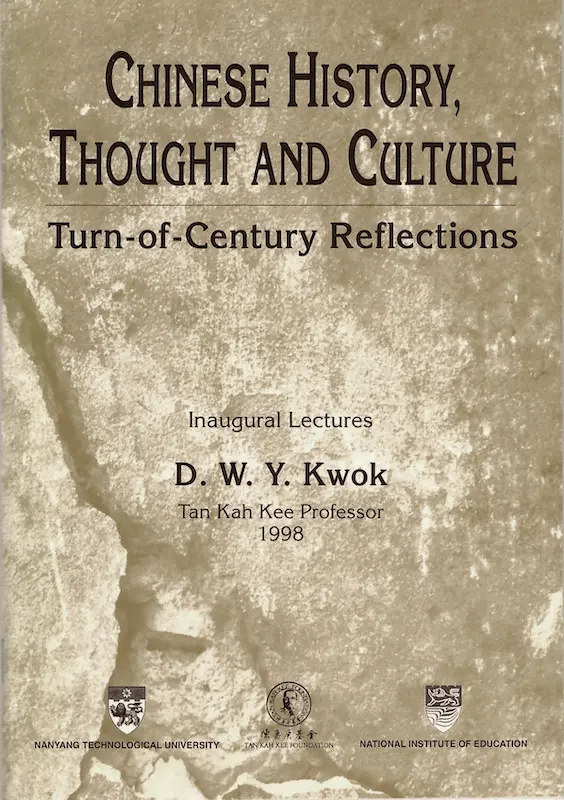
1998
Inaugural Lectures of the Tan Kah Kee Professorship
Eleven years ago, at Qufu, the birthplace of Confucius, I had presented a paper on “he” (harmony) and “tong” (identification). It was given in response to two varying, but related, themes in the interpretation of Confucian thought and Chinese civilization: the place of science in Chinese civilization and the question of Confucian compatibility with capitalism. Even earlier I had come forth with a study on Chinese scientism, that faith in the omnipotence of science.
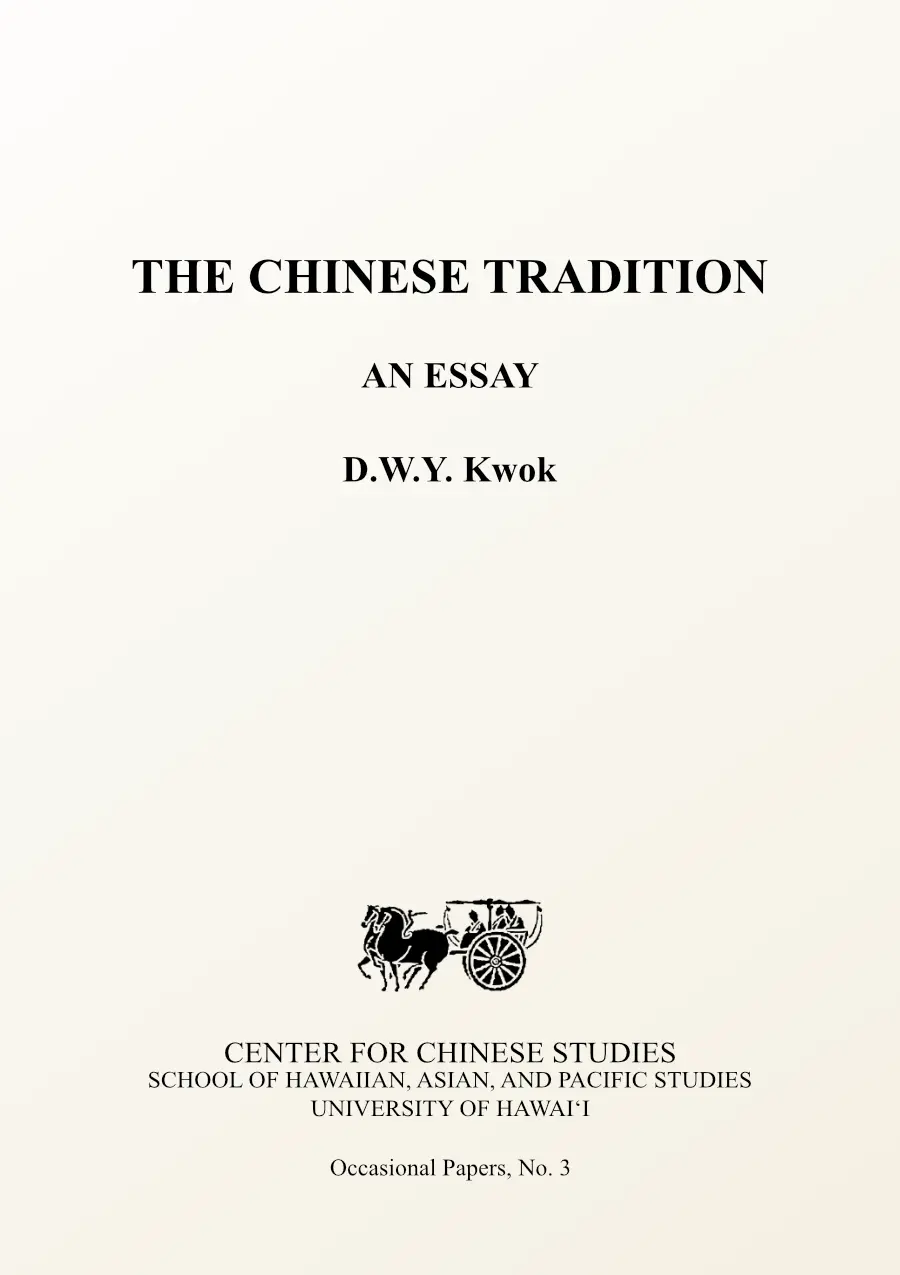
1989
From the foreword: This essay on the Chinese tradition of intellectual life is one of four essays; the others deal with the Hindu-Buddhist, the Islamic and the Western scientific traditions. It was written in August 1985 for a seminar that queried the Asian and Western approaches to knowledge. In the milieu of East-West understanding, there is a need for comparative perceptions of the learning process in scope (the four traditions) and depth (history), quite in contrast to North-South studies in developmental technology.
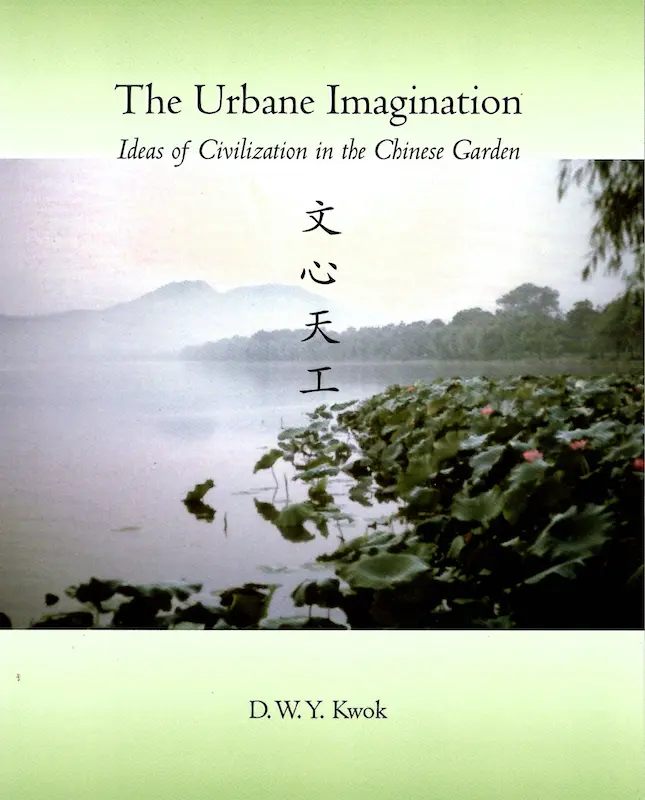
1997 / 2017
A rich, fascinating, and voluminous garden literature exists detailing the botanical, historical, literary, architectural, and design aspects of world gardens. In this essay, I approach the Chinese garden from another view, one that enjoins the intellectual and aesthetic aspects of the garden. The ensuing pages, I hope, will convey this interest in seeing the relationships of thought and culture, and along with it an appreciation of the sensibilities suggested in the Chinese garden which have led me to call the total effect urbane imagination.
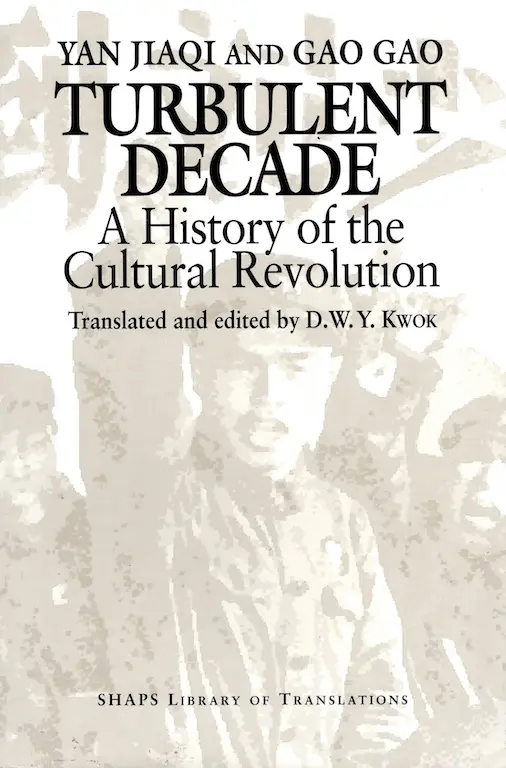
1996
Yan Jiaqi, one of the principal leaders of China’s pro-democracy movement, and his wife, Gao Gao, a noted sociologist, set out to write a comprehensive narrative account of the Great Proletarian Cultural Revolution, which occurred in the second decade after Mao Zedong and his comrades came to power. It appeared in Hong Kong in 1986, and was quickly banned by the Communist government. Not surprisingly, censorship and restricted circulation in China resulted in underground reproduction and serialization.
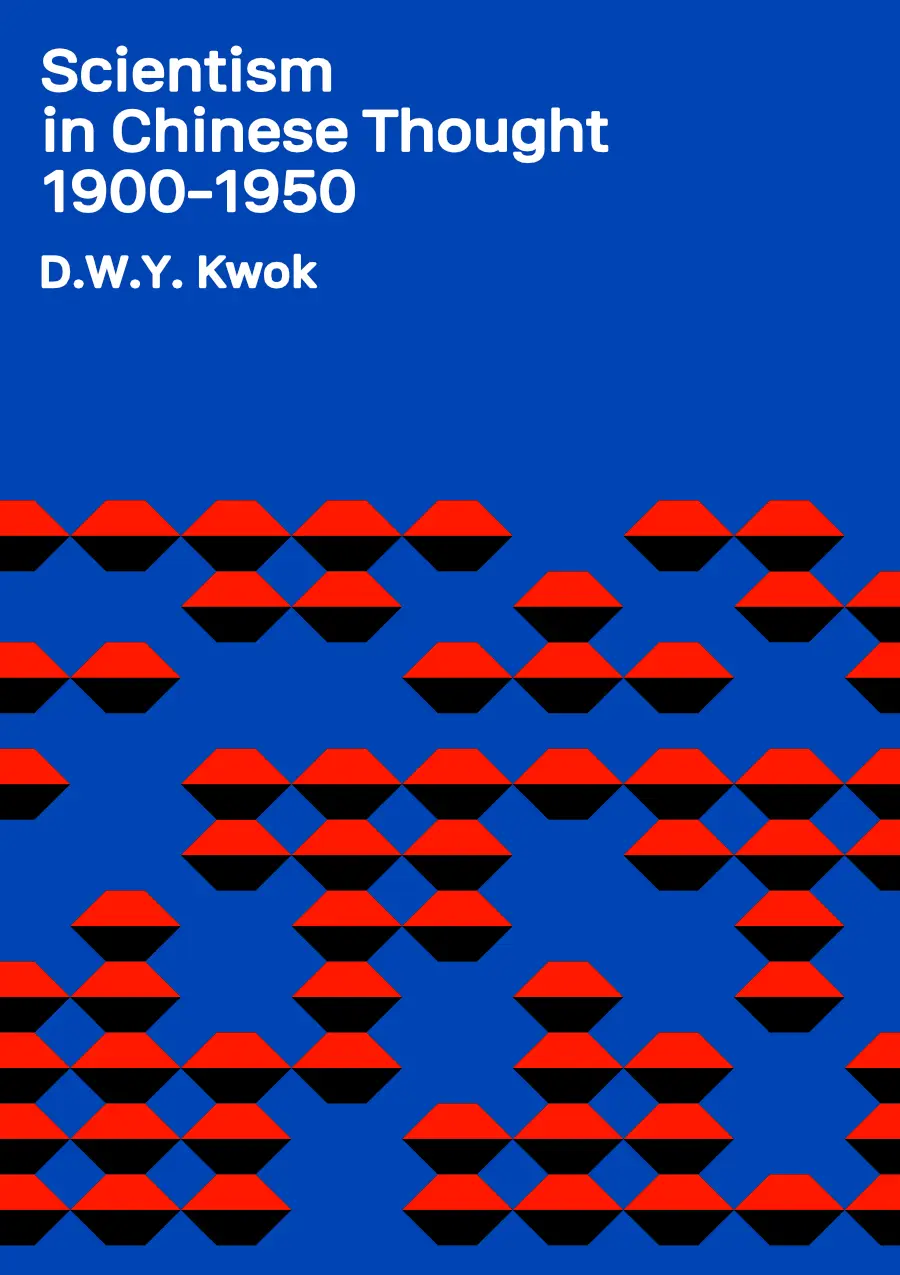
1965
中国现代思想中的唯科学主义: 1900-1950
Conditions during the first half of the twentieth century in China discouraged the wholesale application of science but encouraged an intellectual appreciation of it, which we may call “scientism.” Scientism, in general, assumes that all aspects of the universe are knowable through the methods of science. Proponents of the scientific outlook in China were not always scientists or even philosophers of science. They were intellectuals interested in using science, and the values and assumptions to which it had given rise, to discredit and eventually replace the traditional body of values.
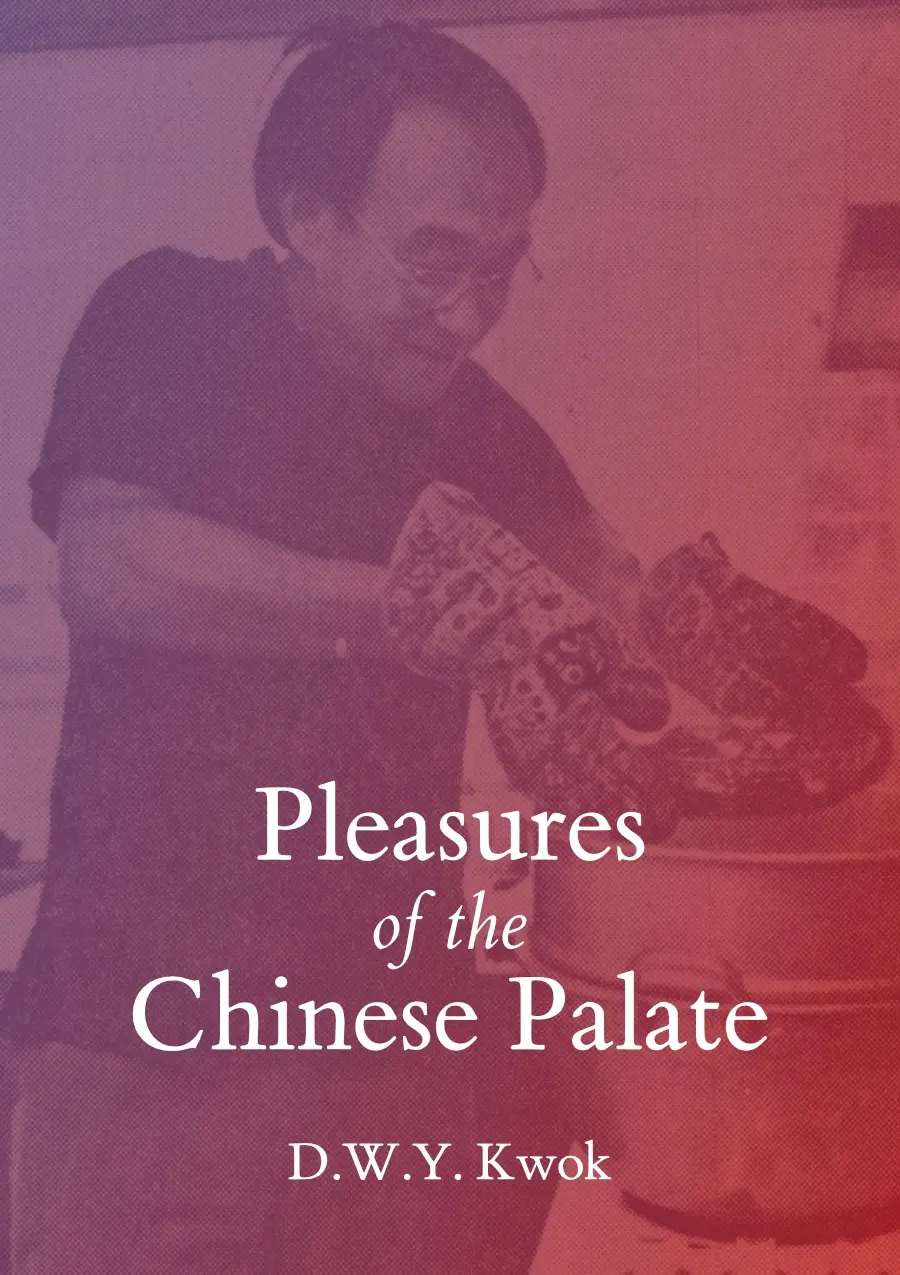
1987
This essay originated at a keynote speech given at an exhibition of Sichuan archeology in San Francisco in Spring 1987, an event accompanied by master chefs from Sichuan producing a 24-course banquet. Under different titles and in different formats, it appeared in the Free China Review, September 1991, pp. 46-51, and Flavor & Fortune, vol. 3, no. 2, 1996, pp. 11-15. The latter is the publication of The Institute for the Advancement of the Science and Art of Chinese Cuisine, 促進中國烹飪科學與藝術研究所, Kings Park, N.Y. The essay appears in Grace Kwok’s Good Chinese Cooking (2014).
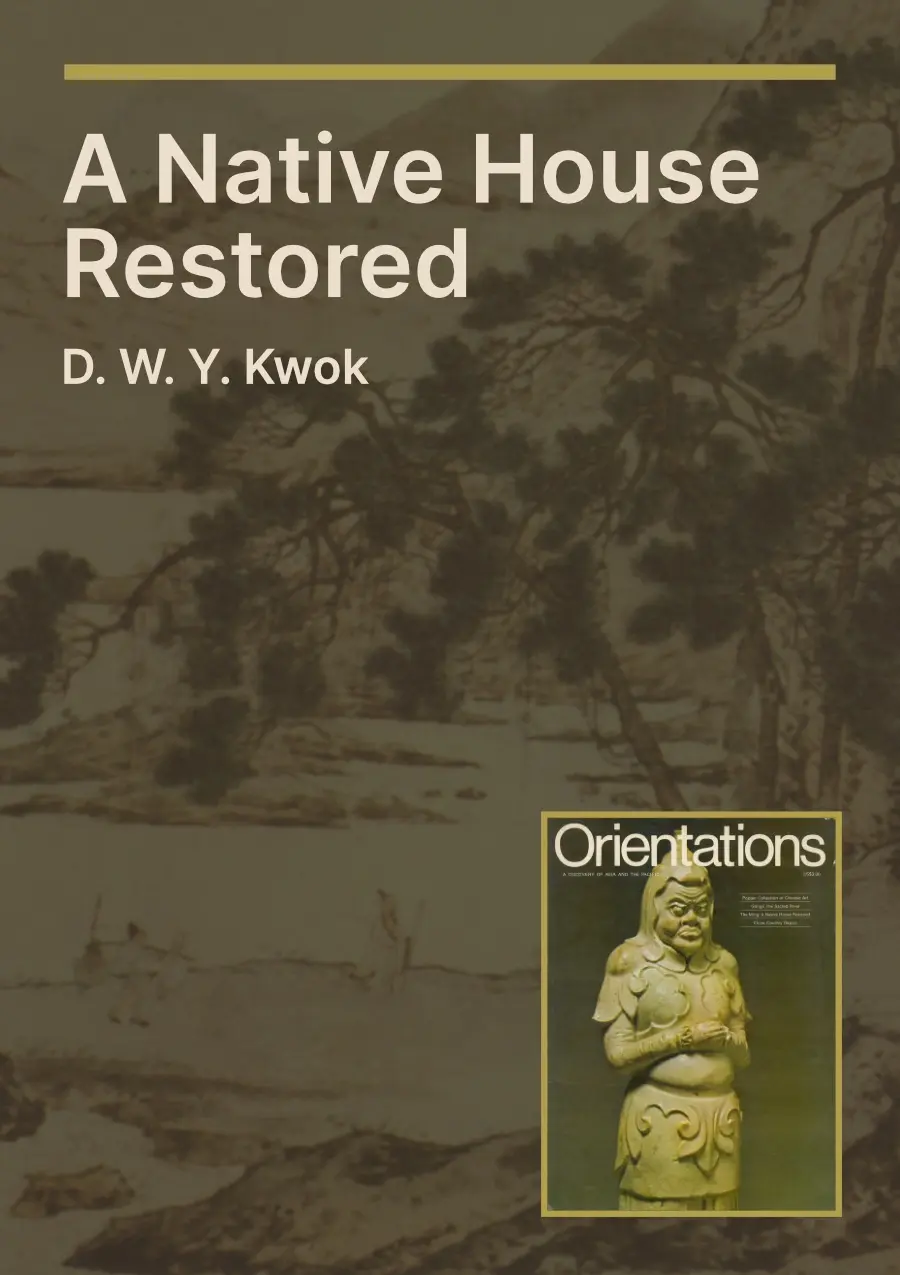
1974
in Orientations, June 1974
The founding of the Ming dynasty was the work of Chu Yuan-chang (1328-1398), only the second man since Liu Pang—who founded the Han in 206 B.C.—to have risen from humble origins to the position of supreme power in China. The accession of the destitute farm boy, one-time bandit and some-time mendicant monk to the Dragon throne in 1368 at the age of 40 is not only a symbol of the rags-to-riches tradition in Chinese political culture, but also the true accomplishment of an unusually gifted and determined man.
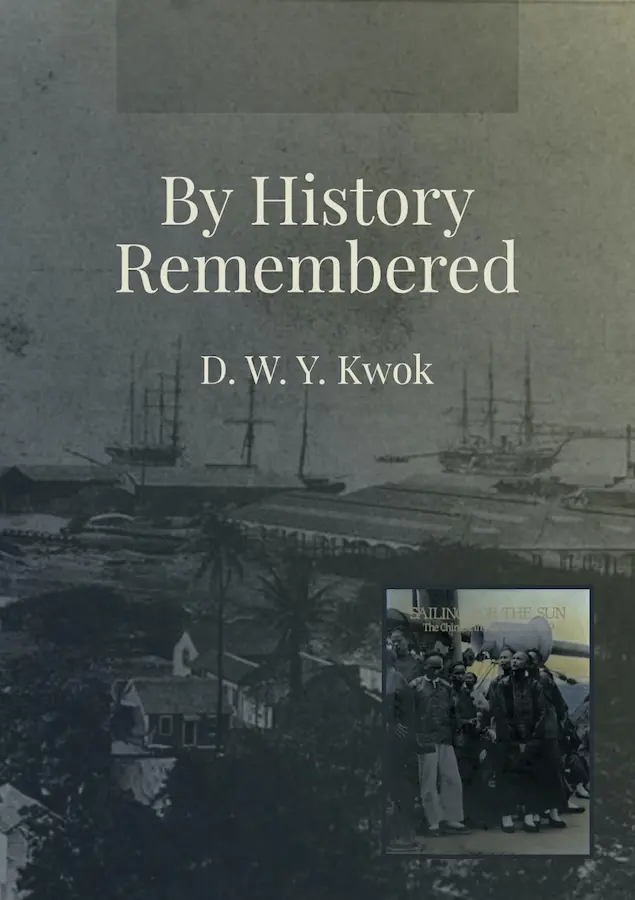
1988
in Sailing for the Sun: The Chinese in Hawaii 1789-1989
The story of the Chinese in Hawaii has been told in a number of ways by sociologists, anthropologists, amateur as well as professional historians, economists and linguists, to name a few. On the occasion of celebrating the bicentennial of the arrival of the Chinese in Hawaii, however, the telling comes alive and holds our interest more than ever. Commemorative language may differ in the face of individual perceptions of what ought to be said and may take historical shortcuts around the not-so-commemorable in life.
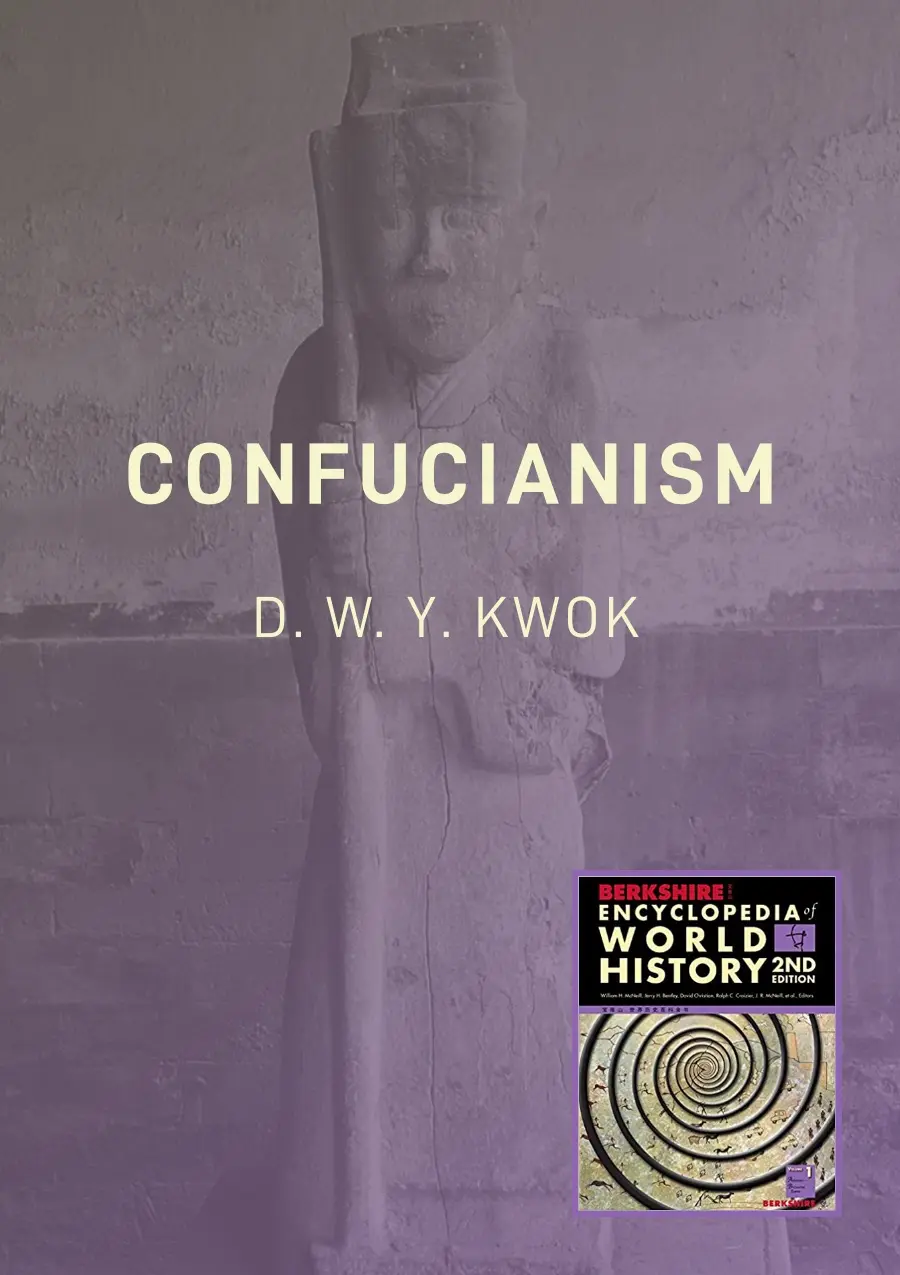
2010
in the Berkshire Encyclopedia of World History
Confucianism, based on teachings of the Chinese philosopher Confucius (551–479 BCE), has inspired philosophers and statesmen for more than 2,500 years. It stresses the importance of education for moral development—humane relationships, good intentions, and decorum, as well as loyalty and trustworthiness—so that rulers can govern the state according to virtue rather than coercive laws. Confucianism, a social and ethical philosophy rather than a religion, originated with Confucius (551–479 BCE), whose name represents a Latinized version of the title Kong Fuzi (Kong the Grand Master).
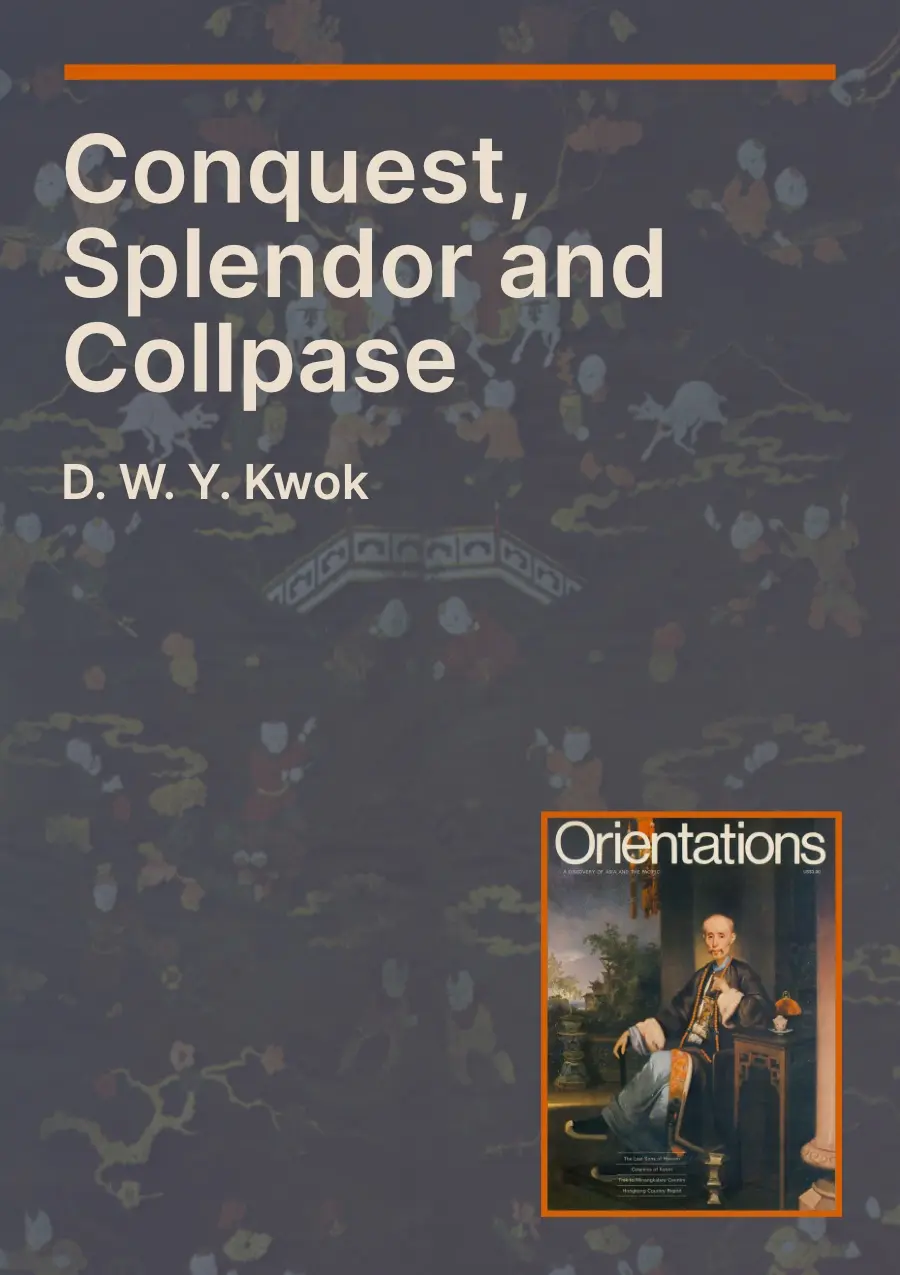
1974
in Orientations, August 1974
The Manchus ruled China for 268 years. Of this long and venerable dynastic mandate, the English-speaking world is probably most familiar with the 70-odd years following the Opium War of 1839-42. The modern West was to be inextricably and unrelievingly involved in the destiny of China for over a hundred years after this conflict, known to the British as the Anglo-Chinese war. To modern history it seemed only post-Opium War China mattered.
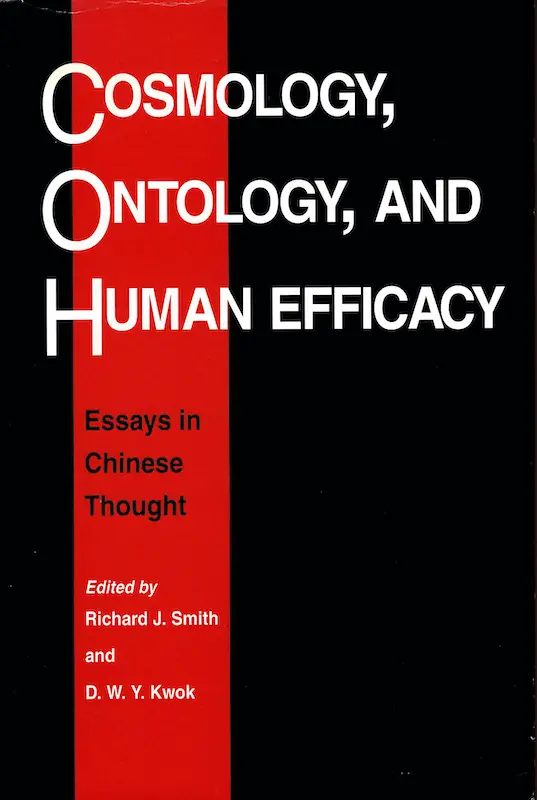
1993
During the Ch’ing dynasty (1644-1912), Chinese intellectuals of all social backgrounds, personalities, and professional affiliations found themselves engaged in a complex process of negotiating and renegotiating the boundaries between the “metaphysical” and the “concrete.” This occurred because they shared a morally grounded world view in which their understanding of the nature of the universe conditioned their sense of place and the role of human beings within the natural order. Their task, then, was to determine what was “given” about the cosmos (that is, what was “fated” or “mandated”) and what was constructed by the minds and actions of individuals–including, of course, themselves.
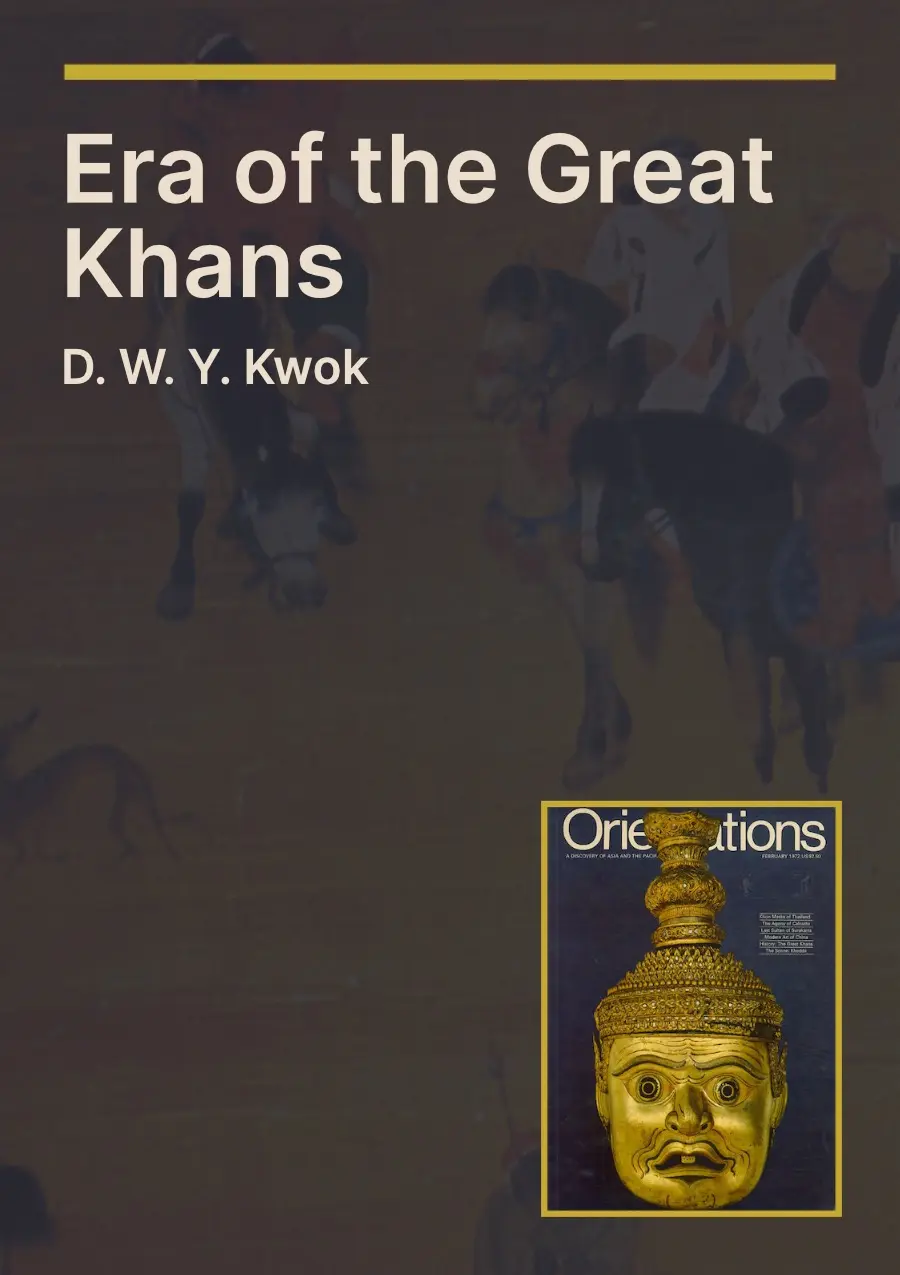
1972
in Orientations, February 1972
“A maiden bearing a nugget of gold on her head could wander safely throughout the realm.” Such were the worlds of a thirteenth-century chronicler, witness of the Mongol Era at its height. Armed might maintained the expanse of nomadic peace across the Eurasian land mass. The mind’s grasp of the magnitude of the Mongol achievement at times still shatters against the hard realities of Central Asia then and now.
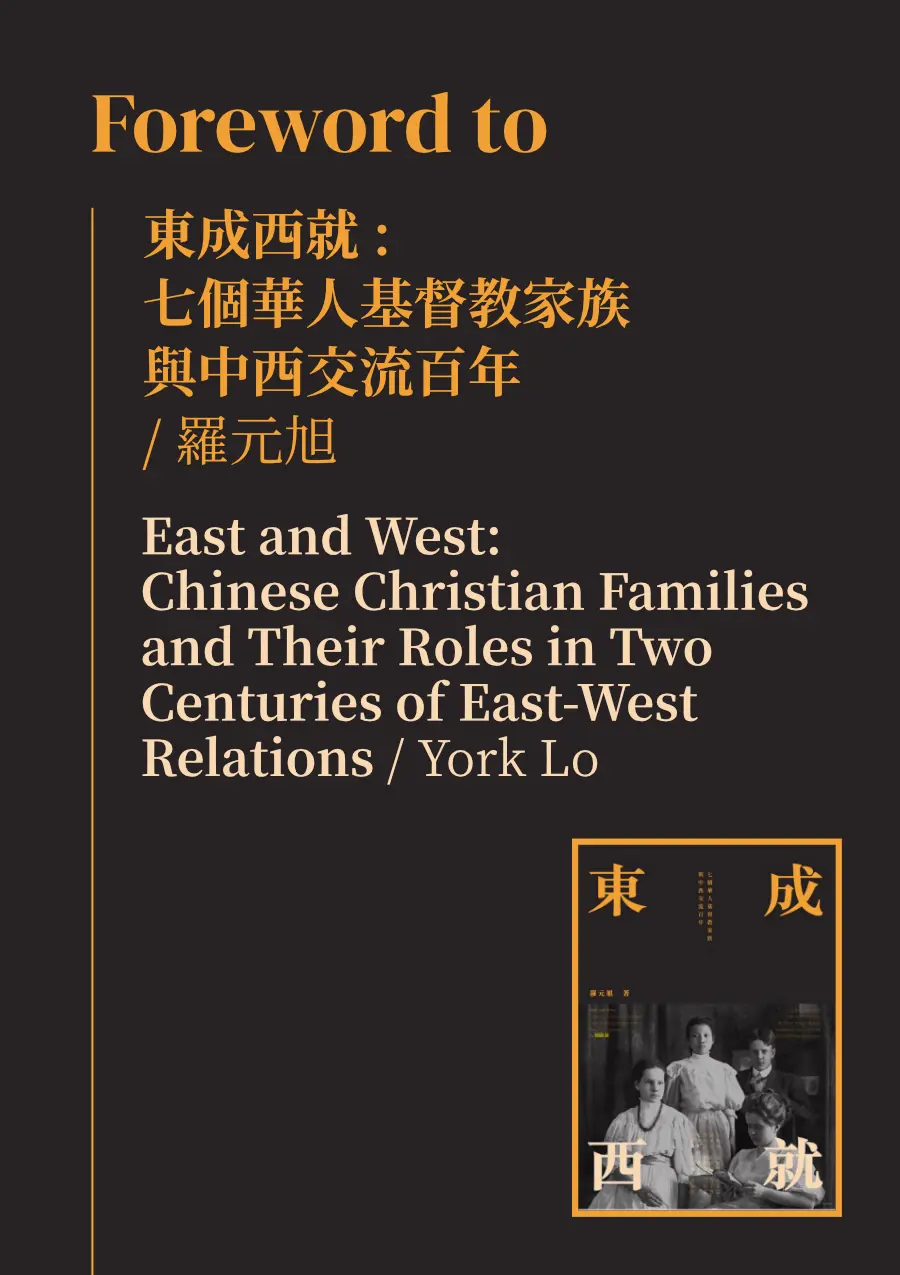
2014
Foreword to York Lo’s East and West: Chinese Christian Families and Their Roles in Two Centuries of East-West Relations
The past century and half of China’s modern history can be viewed as an encounter between Chinese and Western cultures. In the course of this encounter, there were periods and elements of collision as well as mutual accommodation. Most opinions, however, favor viewing the encounter as a collision; some would even view the entirety as one of conflict, thus producing a juxtaposition of a “modern West” and a “traditional China” of differing values.
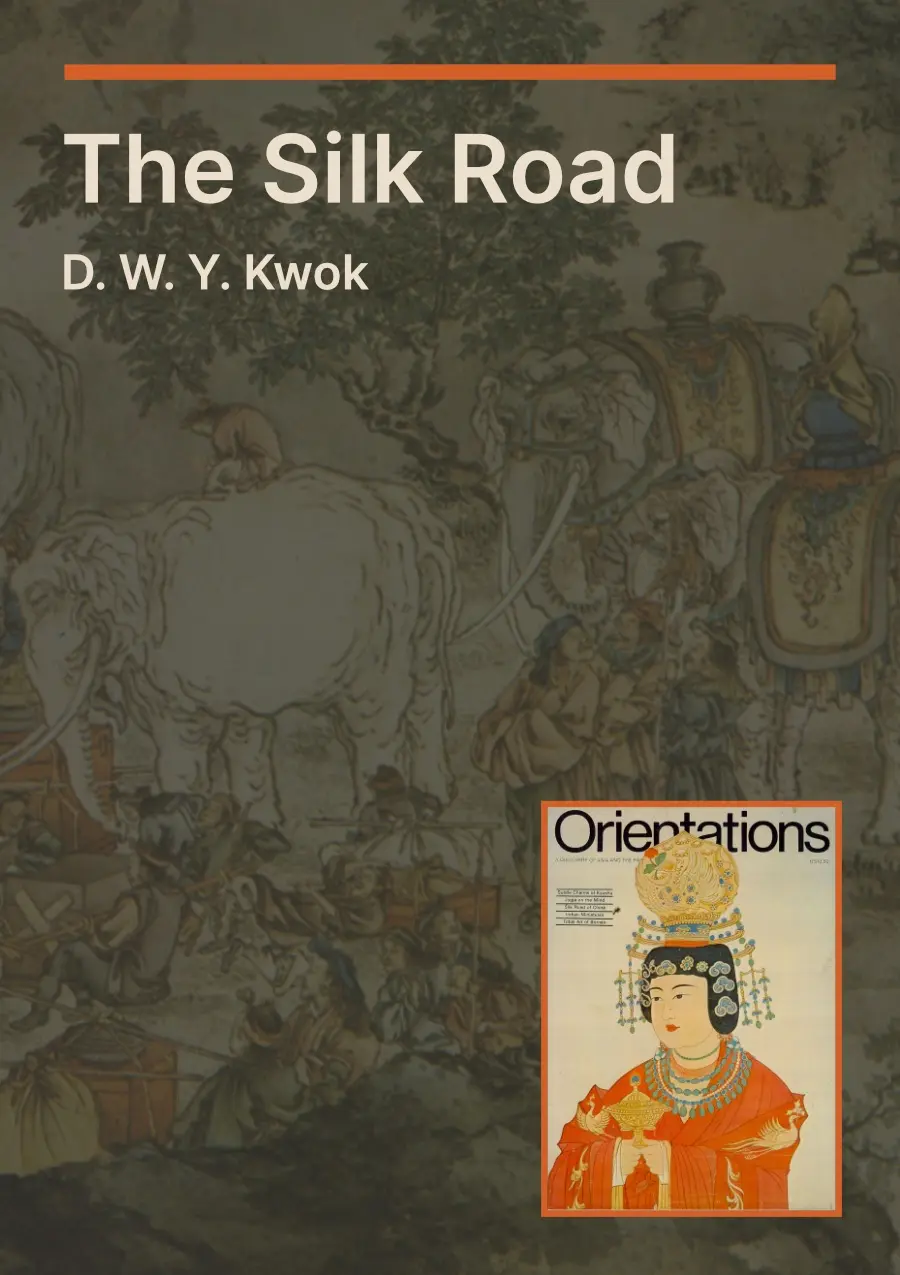
1973
in Orientations, July 1973
Among the exotic commodities that moved along the ancient trade routes, silk was the most prized article. From the shores of the Yellow Sea the fine thread of the silk worm spun its way across Eurasia to clothe fashionable Roman societies as far as Spain, Gaul and Britain. The thread was durable as it was fine, for it linked not only the Pacific and Atlantic Oceans, entwining in the process innumerable peoples and places, but also antiquity and modern times.